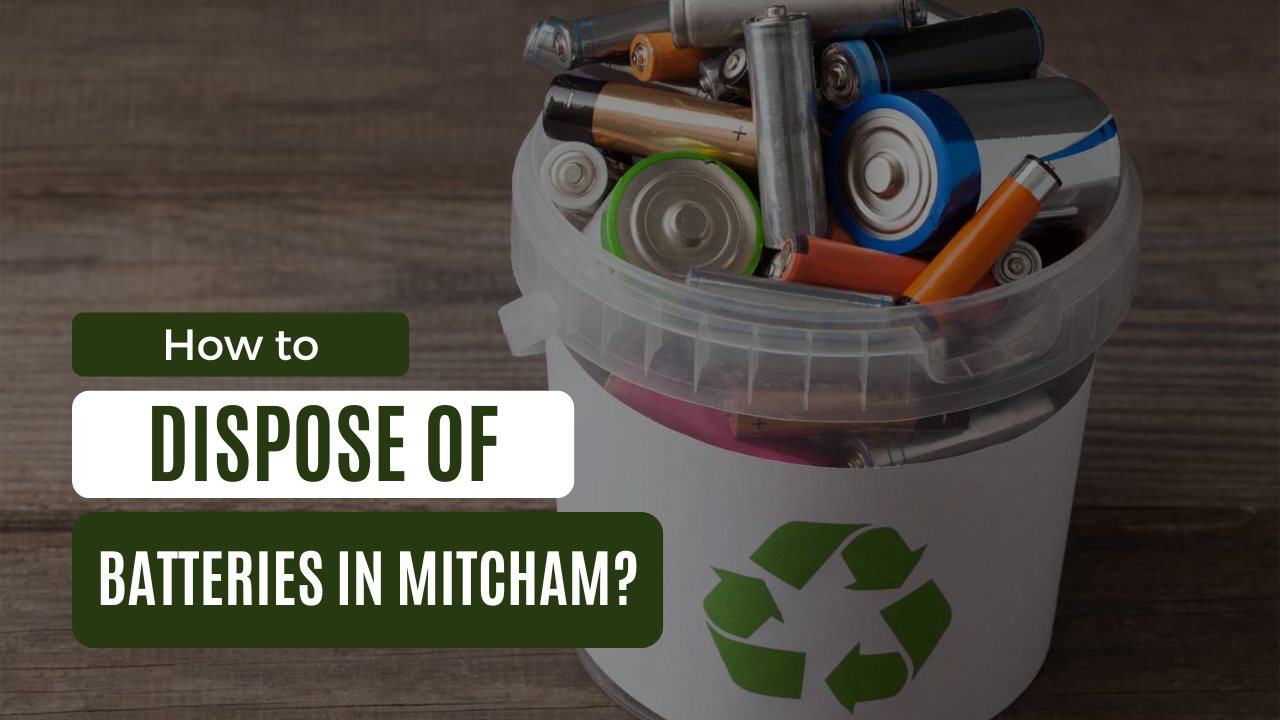Properly disposing of batteries in Mitcham is more than a courtesy; it’s an environmental imperative. Whether it’s the AA cells from your remote or the lithium-ion battery from an old laptop, each type of battery requires specific consideration to ensure we do not harm our environment.
In this guide, we’ll explore how to responsibly dispose of batteries and the facilities available in Mitcham for this purpose.
Recognising Different Battery Types
Before discussing disposal methods, it’s crucial to identify the battery types commonly found in our homes and workplaces. Alkaline batteries (AA, AAA, etc.), button batteries (common in watches), and rechargeable batteries (such as those in smartphones and laptops) all require different disposal strategies. Understanding these types helps prevent environmental damage and maximises recycling opportunities.
Mitcham’s Options for Battery Disposal
1. Local Recycling Centres
Mitcham boasts several recycling centres that specifically handle batteries. These facilities are equipped to safely process and recycle different types of batteries, ensuring harmful components like mercury and lead don’t end up in landfills.
2. Retailer Recycling Programs
Many electronics retailers in Mitcham offer recycling programs. These allow you to return used batteries, particularly those for electronics like laptops and phones, ensuring they are recycled properly and not discarded improperly.
3. Special Waste Collection Days
Mitcham Council organises waste collection days throughout the year where residents can dispose of hazardous materials, including batteries. These events are crucial for handling materials not included in general waste collections.
4. Regular Trash (with caution)
While most batteries should not be disposed of in regular trash due to potential harm, alkaline batteries can generally be disposed of in your household waste. However, wrapping them securely and ensuring they are damage-free is vital to avoid leakage.
Have you read: Choosing the Right Size Skip for Your Project in Mitcham
Best Practices for Battery Disposal
Do not throw rechargeable batteries into regular trash. These contain metals that can be hazardous.
Check for damage. If a battery is swollen or damaged, take it to a specialist facility to ensure safe handling.
Community Impact
Encouraging community involvement in battery disposal can dramatically improve Mitcham’s environmental footprint. Schools and businesses can facilitate collection points, and community leaders can educate on the importance of proper disposal, significantly enhancing our collective effort.
Conclusion
Understanding how to dispose of batteries in Mitcham helps us protect our environment and ensure the safety of our community. By using designated recycling points, participating in take-back programs, and attending special collection events, we can all contribute to a more sustainable Mitcham.
If you have a large volume of batteries or other types of waste, consider contacting Skip Mitcham or booking the best skip online. We’re here to help you manage your waste efficiently and responsibly.
FAQ’s:
Can I throw old batteries in my household bin in Mitcham?
While you can dispose of non-rechargeable alkaline batteries into regular trash, rechargeable and button batteries must be taken to a recycling centre or special collection event due to their hazardous components.
Where can I find battery recycling centres in Mitcham?
Mitcham has several recycling centres equipped to handle all types of batteries. Check with your local council website for locations and operating hours.
Are there any retailer take-back programs for batteries in Mitcham?
Yes, many electronics retailers offer take-back programs where you can drop off used batteries, often at the point of sale.
What should I do with damaged batteries?
Damaged batteries should be taken to a hazardous waste facility as they risk leakage and contamination.
How often does Mitcham Council hold special waste collection events?
Mitcham Council schedules several special waste collection events throughout the year. Dates and details are typically announced on the council’s website and local community boards.





Leave A Comment